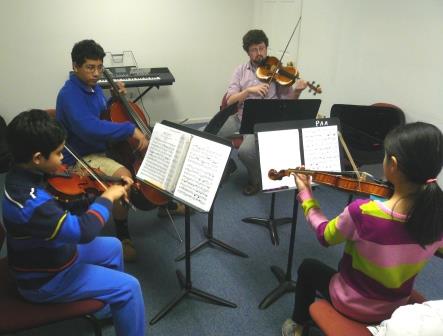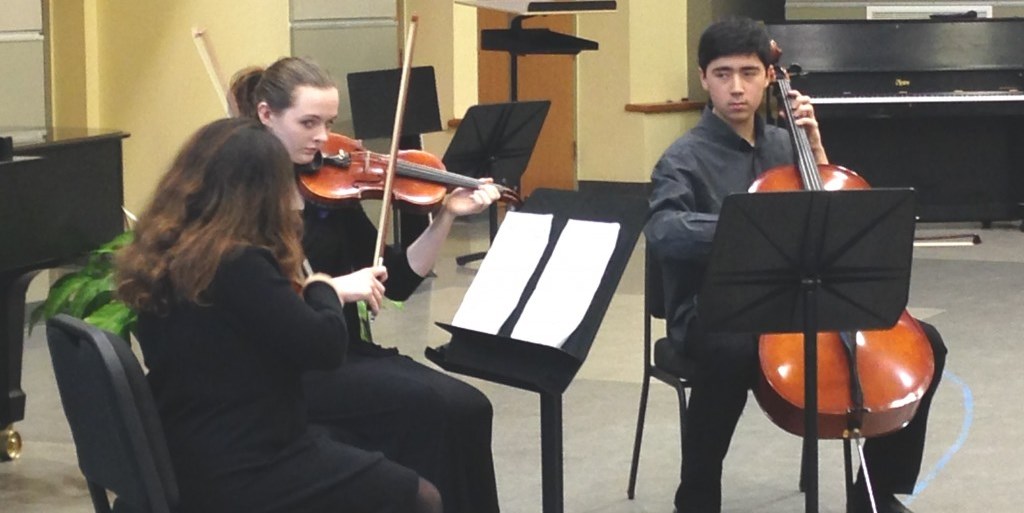WRITTEN BY CLAIRE ALLEN
Students who learn chamber music tend to advance more quickly in their studies. Learning and performing chamber music builds confidence, teamwork, and leadership abilities while developing every essential musical skill: sense of pitch, rhythm, and tone. These skills will cross over to a student’s solo performances and orchestral experiences, making them a much better musician overall.
Currently available for Strings, Piano and Guitar students enrolled in private lessons at Potomac Arts Academy or another studio.
Chamber music is one of the most rewarding, challenging, and amazing parts about being a musician. A chamber ensemble is a group of 3-6 musicians, playing one to a part, who perform without a conductor. Unlike orchestra, there is no one else playing the same part as you, so you have to know your part thoroughly! However, unlike solo performance, you are playing with others as part of a team. The repertoire written for chamber ensembles is among the most beautiful and unique in the body of classical compositions.
How does this all happen? At Potomac Arts Academy, students are placed in a group based on their ages, playing levels, and availability. The coaches work with their private music teachers to select music that is both accessible and appropriate for the group as a whole. Students learn their parts individually at home, and then come to coachings with their parts well-prepared! Then, the real work of bringing the music to life can begin.

In a chamber ensemble coaching, teachers work with the students in a number of different ways:
- Score study is sometimes the first time a student has seen all the different parts of a musical composition – usually they are accustomed to seeing only their part on the page. Part of score study involves a discussion of the musical terms used by the composer, the form and structure of the piece, as well as the ways in which the different parts fit together.
- Music fundamentals are discussed and practiced in the context of an ensemble. Coaches may have students do clapping and counting exercises to strengthen their sense of group pulse and rhythm, or play scales as a group to improve intonation.
- Crafting a musical interpretation is an essential part of the work process. Coaches will guide chamber groups in a discussion of phrasing, dynamics, and character. In some groups, the combination of ideas from all the members will result in a unique musical story that translates to performance.
- Ensemble skills – that is to say, the art of playing together – are at the heart of every chamber coaching. Every aspect of this will be discussed and practiced, from how to cue each other’s entrances, to listening to one’s fellow musicians, to blending the individual sounds into a collective whole.
The registration deadline for our Spring Semester 2017 is fast approaching. Register now to get enrolled and to be placed in an available group!
CHAMBER MUSIC ENSEMBLE DETAILS

